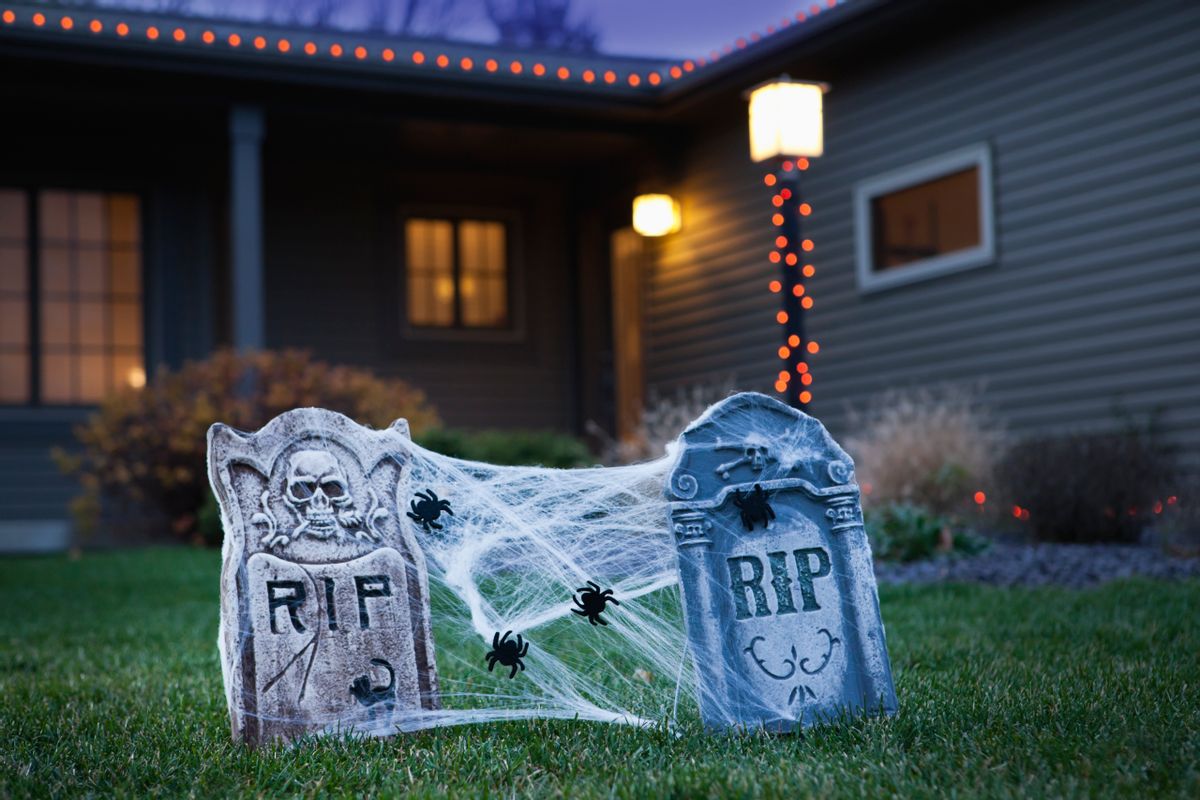As autumn advances, leaves begin to fall from trees and a chill runs through the air, making it increasingly clear the spooky season is upon us. But as people decorate for Halloween, they may be setting up a trick rather than a treat for surrounding critters: That fake spider webbing commonly seen across the country every October is just as effective at trapping critters as a real web is.
Kathryn Dudeck, the wildlife director at Georgia's Chattahoochee Nature Center, told Snopes via phone that fake spider webbing, normally made out of a synthetic, fiber-like polyester, is similar to tightly woven fiberglass.
"The webbing actually adheres to the skin of a toad," she said. "For raptors and songbirds, it sticks to their feathers and then settles in between them, almost like velcro."
Dudeck said that she first noticed the problems with fake cobwebs in the 2010s when she was walking in her neighborhood and found a toad trapped in the decoration. But while she successfully freed the toad, the encounter reminded her of snakes and owls trapped in non-decorative garden netting. She posted to Facebook in 2018 after finding an image of an owl that had "wrapped itself up like a burrito trying to break free." Other posts on Facebook show similar predicaments:
Dudeck said that animals most at risk with fake cobwebs are small birds, including hummingbirds and small owls, bats and reptiles, like toads.
"In low light, owls have trouble seeing the webbing," she said.
Rodents like squirrels and chipmunks can use their teeth to free themselves from netting, Dudeck added, but they're at risk with another common danger at Halloween: bleach-soaked pumpkins.
"There are people who soak their pumpkins in bleach to make them last longer and deter pests," she said. "Use vinegar instead ... has the same effects but isn't harmful."
The danger of fake webs doesn’t immediately go away after Halloween, either. A 2019 article from the Australian Broadcasting Corporation explains that if not properly disposed of, birds might use the material to build their nests. In a worst-case scenario, the webbing could catch and trap any chicks in the nest. The solution to all of this is fairly easy: stop using fake webs outside.
Instead, consider moving the webbing indoors, perhaps behind a window so it’s still visible. If you are set on creating a web outdoors, Dudeck recommended making one out of rope and ensuring you've left ample space between strands to mitigate the risk to wildlife.
Luckily, because of the webbing’s status as a seasonal decoration, fake cobwebs are still a relatively uncommon problem for wildlife. An NBC report from 2022 explained that while fake webbing is dangerous, many other human-made objects, like glue traps, a common pest-control solution that the Humane Society of the United States calls "cheap, cruel and indiscriminate," are even more common and just as deadly.
